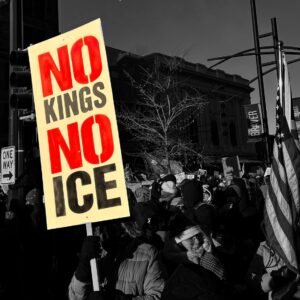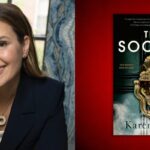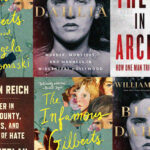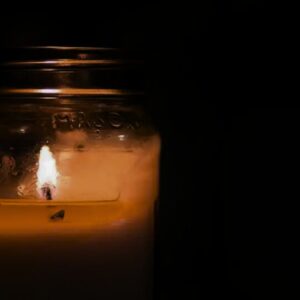
Jewish Literature Isn't Dead: It's Being Written By Women
A Reading List, from Karen E. Bender to Anna Solomon
Like many bibliophiles, I’ve followed the recent wave of reviews of Jonathan Safran Foer’s new novel, Here I Am, with interest. In this case, my curiosity was piqued by the preview of the novel that The New Yorker gave us last spring, which inspired me to place the title on my to-read list, despite not being a big fan of Foer’s work. Multiple efforts notwithstanding, I’ve never made it past the first few pages of his debut novel, Everything Is Illuminated; I didn’t even bother trying when it came to his second, Extremely Loud and Incredibly Close.
But this piece is concerned less with Foer or his work than with an issue embedded within one of the more brutal reviews of the book: the situation of Jewish-American literature today. Which, according to Alexander Nazaryan’s discussion in the Los Angeles Times, is in a dire, depressing, deathly place.
In 2008, the cultural critic Vivian Gornick told the Boston Review that “Jewish writing is over,” noting that her two nieces were “Ivy League babies.” Yet, she added, writers keep clinging to the outmoded genre, like barnacles to a craft run aground. She singled out Foer and Michael Chabon, the bearded bard of Berkeley. “They’re cashing in on a world that’s long gone and they’re writing with open nostalgia,” she lamented of that duo. “They’re making things out of it that belong to their grandfathers.”
But what worked for [Philip] Roth in 1969—the year that Alexander Portnoy committed unspeakable acts with a slab of liver—can’t work today, not with Jews so fully assimilated into American society that we routinely wear boat shoes and sometimes even play professional sports. That has destroyed the possibility of a Jewish literature removed from the American mainstream.
Nazaryan and Gornick have given me so much to argue with. And, to be honest, I’ve tried—in an essay draft that’s already approaching 4,000 words and driving me mildly insane. In a sense, Nazaryan’s review was the straw that broke this camel’s back, unleashing accumulated frustrations that might, in final written form, bear the title “MFA vs. JEW.”
But what I want to do here is rein myself in and focus on this point: Jewish writing is decidedly not over. (Not that Nazaryan and Gornick and those who agree with them wouldn’t be in good company—I’m looking at you, Irving Howe, and your oft-invoked introduction to your 1977 anthology Jewish American Stories. Which reminds me that I haven’t yet noted one especially irritating point: Much of the lamenting over the demise of Jewish American writing seems to come from Jewish voices.)
If you limit “Jewish writing” to a particular narrative of alienation—a narrative grounded in the great migratory wave from the 1880s to the 1920s, from poverty and persecution in Eastern Europe or Russia to new American lives (still often impoverished; more vulnerable on these shores to prejudice than life-threatening pogroms) in New York (or, in Roth’s case, New Jersey); a narrative built around ensuing self-focused conflicts of assimilation and identity and rebellion (almost always written by male authors and featuring male protagonists)—then, you are correct. “Jewish writing” may well be “over.” But your premise is so faulty—so lacking in recognition of what has been happening in Jewish literature since 1969 and Alexander Portnoy—that you are, in fact, wrong.
I won’t return to 1969 to begin proving my point. Rather, I’ll spotlight a mere ten novels that engage with American Jewish experience. To up the ante, I’ll “limit” them to novels by women that I’ve read in the past five years (which doesn’t necessarily mean that they were first published in 2011 or later; that is, however, true in most cases).
Of course, applying such criteria requires me to omit many other titles. Novels that have remained too shamefully long on my to-read list without my managing to get to them. Novels that I read before 2011. Novels that may not engage directly with American Jewish experience (when I think of “Jewish literature,” I think often of Israeli literature, and literature from throughout the Diaspora, and my reading list takes shape accordingly). Some superb novels by men.
I’ve also excluded stellar story collections, works of nonfiction, and poetry. I’ve refrained from listing “midrashic” writings that re-tell tales found in sacred texts to give voice to characters whom the ancient scribes neglected. And, to avoid a potential conflict of interest, I’ve chosen not to include work published by a company that I work for, Fig Tree Books, which specializes in literature of American Jewish experience.
Yet, even within the relatively narrow parameters I’ve set, I see ample reason for optimism. This is a vibrant, thriving literature that tells new stories in fresh voices. The fact that I count several of the writers whose books I cite below as friends makes me even happier.
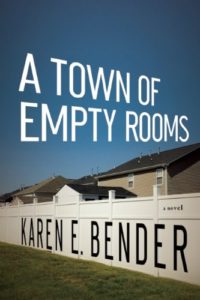
A Town of Empty Rooms, Karen E. Bender (Counterpoint, 2013)
Much has been made of the marital strife at the heart of Foer’s new novel; Bender’s protagonist Serena Hirsch and her husband Dan Shine are similarly past the honeymoon stage. But this novel charts at least two other key conflicts: the family’s move to North Carolina and the anti-Semitism they encounter there, and the intramural discord within the sole local synagogue, Temple Shalom.
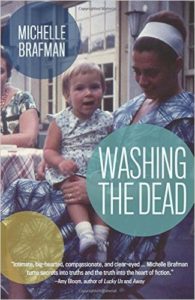
Washing the Dead, Michelle Brafman (Prospect Park Books, 2015)
The title refers to Jewish rituals for preparing bodies for burial; the narrative alternates mainly between the protagonist’s youth in an Orthodox community in Milwaukee and her suburban present (circa 2009).
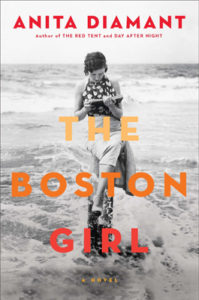
The Boston Girl, Anita Diamant (Scribner, 2014)
Protagonist Addie Baum is a teenager in 1915 when the story she narrates to her granddaughter begins. Unlike her elder sisters, Addie, “the Boston girl,” is American-born. We learn a great deal about Boston, and American history, and women’s history, through her recounted experiences. I agreed with some of the criticisms I read upon publication, but I maintain that the novel is a worthy one.
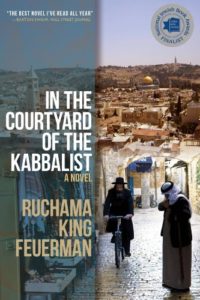
In the Courtyard of the Kabbalist, Ruchama King Feuerman (New York Review Books, 2014)
Two weeks before he passed away, critic D.G. Myers tweeted this:
I am proud to have finished my week ahead of Shabbes by praising the increasingly non-stop and superb novelist, my new favorite, @RuchamaF.
— D G Myers (@dg_myers) September 12, 2014
Article continues after advertisement
//platform.twitter.com/widgets.js
My only regret about this novel—built around an American who immigrates to Israel, where he becomes assistant to a rabbi famous for dispensing sage advice to the souls who gather in his courtyard—is that I didn’t read it in time to discuss it with David.
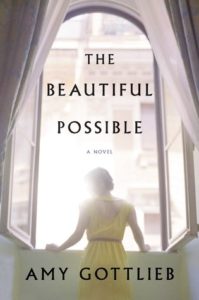
The Beautiful Possible, Amy Gottlieb (HarperCollins, 2016).
“A love story steeped in biblical text and mystical yearning.” So has one reviewer described Gottlieb’s debut novel. Accurately.
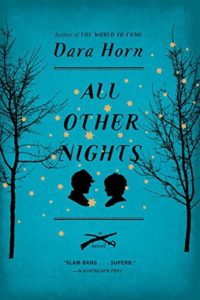
All Other Nights, Dara Horn (W. W. Norton, 2009)
Contrary to popular misapprehension, a Jewish presence in the United States significantly predates the aforementioned migratory wave in the late-19th and early-20th centuries. Dara Horn’s All Other Nights ably explores American Jewish experience during the Civil War.
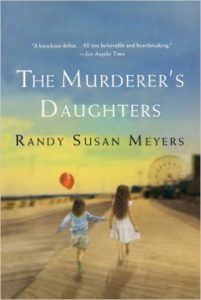
The Murderer’s Daughters, Randy Susan Meyers (St. Martin’s Press, 2010)
In this novel we follow Lulu and Merry, “the murderer’s daughters,” as they grow up and build lives despite their early exposure to domestic violence, alcoholism, and parental incarceration. “Perhaps readers will find the story unusual or more disturbing as the family was Jewish.” So wrote Penny Metsch in a review for the Jewish Book Council. Unusual and disturbing, perhaps—but also powerful and memorable.
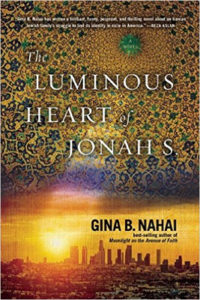
The Luminous Heart of Jonah S., Gina B. Nahai (Akashic Books, 2014)
Notwithstanding the fact that it takes the reader a fairly long time to encounter the eponymous Jonah S., this book lives up to its publisher’s description: “Part murder mystery and part family saga, this dramatic and often hilarious novel explores the history of Los Angeles’s Iranian Jewish community.” (American Jews of Iranian origin provide just one example of many immigrant subgroups, including those from other Middle Eastern countries, who have succeeded that far larger and more famous earlier wave.)

The Little Bride, Anna Solomon (Riverhead Books, 2011)
This one went on my to-read list as soon as Publishers Lunch reported the deal for the “debut novel exploring the little-known history of Jewish immigrants who settled on the Great Plains—the story of a young Russian mail-order bride stranded on the South Dakota prairie, married to a man twice her age and increasingly in love with her 19-year-old stepson.” It remains a prime example of a subset of American Jewish literature that I categorize in my head as telling stories of “Jews in Unusual Places.”
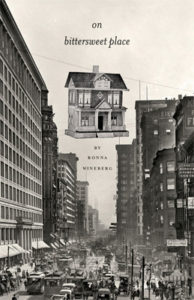
On Bittersweet Place, Ronna Wineberg (Relegation Books, 2015)
When I was asked to blurb this Chicago-set novel, I wrote that in its pages “one finds echoes of Anzia Yezierska and Betty Smith; in the fictional story of Lena Czernitski’s immigrant family in the first quarter of the 20th century the reader recovers a piece of our larger American history. Quite impressive.”
“Quite impressive.” Contrary to some opinions, that phrase describes the state of American Jewish literature today, too.
Erika Dreifus
Erika Dreifus is the author of Quiet Americans: Stories, which was named an ALA/Sophie Brody Medal Honor Title for outstanding achievement in Jewish literature. Stories in that collection were published, sometimes in slightly different versions, in Solander: The Magazine of the Historical Novel Society, J Journal: New Writing on Justice, TriQuarterly, Southern Indiana Review, Jewish Education News, Mississippi Review Online, and elsewhere. Erika is currently at work on a poetry manuscript tentatively titled Birthright. Since 2004, she has published The Practicing Writer, a free and popular e-newsletter for fictionists, poets, and writers of creative nonfiction. She lives in New York City, works as Media Editor for Fig Tree Books LLC, and teaches occasionally at MFA programs, writing conferences/centers, and libraries.









